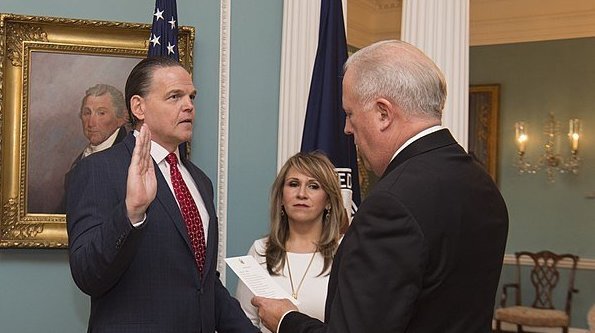This week, thousands more undocumented Haitian migrants made their way to the Texas border town of Del Rio. ‘Open borders’ advocates claim the migrants are fleeing from political persecution in their native Haiti which is going through yet another period of turmoil, this time in the aftermath of the assassination of Haitian president Jovenel Moïse on July 7.
It is therefore somewhat surprising that Biden’s response to the Del Rio invasion was in keeping with that of his immediate predecessors: he ordered their expulsion. After all, there is little basis on which to grant the migrants political asylum — there is no evidence they will face persecution when they return to Haiti. Further, despite the terrible conditions in Haiti, the migrants in Del Rio did not come directly from Haiti but from Chile, Brazil, Ecuador and Mexico, none of which, it should be noted, have offered asylum. Simply put, the Haitians migrated to Del Rio when their employment opportunities dried up.
Biden’s decision is eminently defensible. Yet he received immediate blowback from one of his own appointees, Daniel Foote, a career foreign service officer who, until Wednesday, had been serving as the Biden administration’s special envoy to Haiti. In his resignation letter Foote said he would “not be associated with the United States inhumane, counterproductive decision to deport thousands of Haitian refugees and illegal immigrants to Haiti, a country where American officials are confined to secure compounds because of the danger posed by armed gangs to daily life.”
Foote’s resignation is a classic case of a diplomat ‘going native’ — also known as ‘clientitis’ —in which the diplomat champions the interests of the country they serve in rather than the interests of the country they serve.
Sadly, Foote is far from the first American diplomat to suffer from a bout of clientitis, nor will he be the last.
US diplomats going at least as far back as Stalin’s show-trial apologist Joseph E. Davies have fallen prey to this tendency. But it was not until after the fall of the Berlin Wall, where the threat of nuclear annihilation dissipated, that clientitis starting spreading through the diplomatic service.
In recent years, a series of US ambassadors to Ukraine, including Geoffrey Pyatt and William Taylor regularly overlooked US interests in their enthusiasm for a war with Russia over the Donbas, an economically depressed strategic backwater with no bearing on US national security. As Ted Galen Carpenter observed of Taylor’s time in Kiev, “it seemed as though Taylor was Ukraine’s ambassador to the United States rather than the U.S. ambassador to Ukraine.” Then there was Trump’s personal envoy to Israel, David M. Friedman, who routinely conflated the whims of the host Right-wing Likud government for American interests and in doing so bestowed an ‘endless list of political giveaways’ to Benjamin Netanyahu.
These cases are all symptomatic of the underlying arrogance in America’s diplomatic corps. Certain diplo-officers believe they are endowed with a higher purpose and that only they know what’s best for for their country, and not the president who they serve.
In the end this is what the Foote affair comes down to: a high-ranking US diplomat resigning because he disagreed with a sensible and legal decision made by a duly elected president; a president who decided to place the interests of his own citizens over those of thousands of economic migrants who illegally crossed the sovereign border of the United States. One can only hope that Foote’s replacement will be better suited to the task at hand and serve the president’s interests, not his own.










Join the discussion
Join like minded readers that support our journalism by becoming a paid subscriber
To join the discussion in the comments, become a paid subscriber.
Join like minded readers that support our journalism, read unlimited articles and enjoy other subscriber-only benefits.
Subscribe